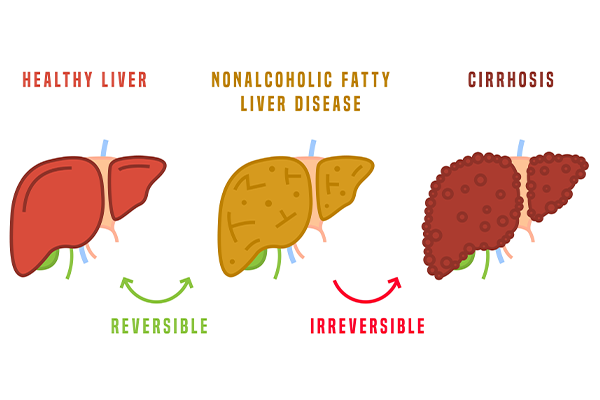
Each year, April 19 is observed as World Liver Day, a time to raise awareness about liver health and educate people about liver-related diseases. In 2025, the theme “Food is Medicine” reminds us that the path to good health—and a healthy liver—starts on our plate.
Our liver is a silent multitasker. It detoxifies our blood, helps digest food, stores essential nutrients, and even boosts our immune system. But when neglected, it can lead to serious health problems, including fatty liver disease, hepatitis, cirrhosis, and liver cancer.
This World Liver Day, let’s take a closer look at how we can protect this vital organ through the food we eat—and why choosing the right lifestyle today can mean a healthier future tomorrow.
Synopsis
Why Liver Health Matters
The liver is a powerhouse of over 500 different functions in our body. Some of its most essential roles include:

-
Filtering toxins from the blood
-
Breaking down fats, proteins, and carbohydrates
-
Storing vitamins and minerals
-
Producing bile to aid digestion
-
Regulating blood sugar and cholesterol levels
-
Fighting infections as part of our immune response
Because it handles so many tasks, any damage to the liver affects multiple parts of the body. Unfortunately, liver diseases often develop silently, showing symptoms only in later stages. That’s why early care and prevention are so important.
The Food-Liver Connection: Why “Food is Medicine”
Our daily meals can either help the liver thrive or put it under stress.
Foods That Heal and Protect the Liver
-
Green Leafy Vegetables: Spinach, kale, and fenugreek are rich in antioxidants that help detox the liver.
-
Fruits: Berries, apples, and citrus fruits support liver function with vitamin C and fiber.
-
Garlic: Contains sulfur compounds that activate liver enzymes to flush out toxins.
-
Turmeric: Has anti-inflammatory properties and promotes bile production.
-
Whole Grains: Brown rice, oats, and quinoa improve liver metabolism.
-
Fatty Fish: Omega-3-rich foods like salmon reduce liver inflammation.
-
Nuts: Almonds and walnuts contain healthy fats that reduce liver fat.
-
Green Tea: Rich in catechins, which support liver enzyme levels.
Foods That Harm the Liver
-
Fried and fatty foods (e.g., chips, fast food)
-
Sugary drinks and desserts
-
Excessive alcohol
-
Red and processed meats
-
Highly processed packaged snacks
|
Liver Disease |
Causes |
Symptoms |
Prevention/Treatment |
|
Fatty Liver Disease (NAFLD & AFLD) |
Obesity, diabetes, unhealthy diet, and excessive alcohol use |
Fatigue, weight gain, liver inflammation |
Healthy diet, weight management, and reducing alcohol |
|
Hepatitis (A, B, C, D, E) |
Viral infection, contaminated food or water, unsafe sex |
Jaundice, fever, nausea, liver inflammation |
Vaccination, hygiene, and safe practices |
|
Cirrhosis |
Chronic alcohol abuse, viral infections, and fatty liver disease |
Abdominal swelling, weakness, and confusion |
Avoid alcohol, manage underlying diseases |
|
Liver Cancer |
Chronic liver disease, hepatitis B/C, cirrhosis |
Weight loss, pain, jaundice, swelling |
Early detection, medical treatment, lifestyle changes |
|
Liver Failure |
Severe liver damage from toxins, infections, and diseases |
Jaundice, confusion, swelling, loss of appetite |
Urgent medical attention, liver transplant if needed |
Lifestyle Habits to Keep Your Liver Happy
Beyond food, your daily habits matter. Here’s how to support your liver health naturally:
1. Stay Hydrated
Drink 8–10 glasses of water daily. Water helps flush out toxins and keeps liver cells functioning properly.
2. Exercise Regularly
Aim for at least 30 minutes of physical activity most days. It helps reduce liver fat and improves overall metabolism.
3. Maintain a Healthy Weight
Obesity is a major contributor to NAFLD. A balanced diet and regular exercise help prevent fat buildup in the liver.
4. Limit or Avoid Alcohol
Alcohol puts extra strain on your liver. If you drink, do so in moderation, or consider quitting altogether.
5. Be Cautious With Medications
Avoid self-medication and overuse of painkillers like paracetamol. Always follow your doctor’s instructions.
6. Get Vaccinated
Protect yourself from Hepatitis A and B with timely vaccinations.
7. Sleep and Stress Management
Poor sleep and chronic stress can impact liver function. Try relaxation techniques like yoga or meditation and aim for 7–8 hours of quality sleep.
Conclusion
At Manipal Hospital Patiala, we are committed to providing expert liver care through advanced diagnostics, preventive health check-ups, and specialized treatments. This World Liver Day 2025, take a proactive step towards better health by scheduling a liver health check-up with our specialists.
Your liver health matters! Book an appointment today at Manipal Hospital Patiala and ensure a healthier tomorrow.
FAQ's
Early signs include fatigue, jaundice, loss of appetite, nausea, and dark urine. Regular check-ups can help with early detection.
Mild liver damage due to fatty liver disease or early-stage hepatitis can often be reversed through lifestyle changes. However, conditions like cirrhosis are irreversible.
Foods like garlic, turmeric, green leafy vegetables, nuts, and citrus fruits help detoxify the liver naturally.
If you have risk factors like obesity, diabetes, or alcohol consumption, an annual liver function test is advisable.
Yes, chronic stress can lead to inflammation and negatively impact liver function. Managing stress through meditation, yoga, and adequate sleep can help.



















 4 Min Read
4 Min Read














